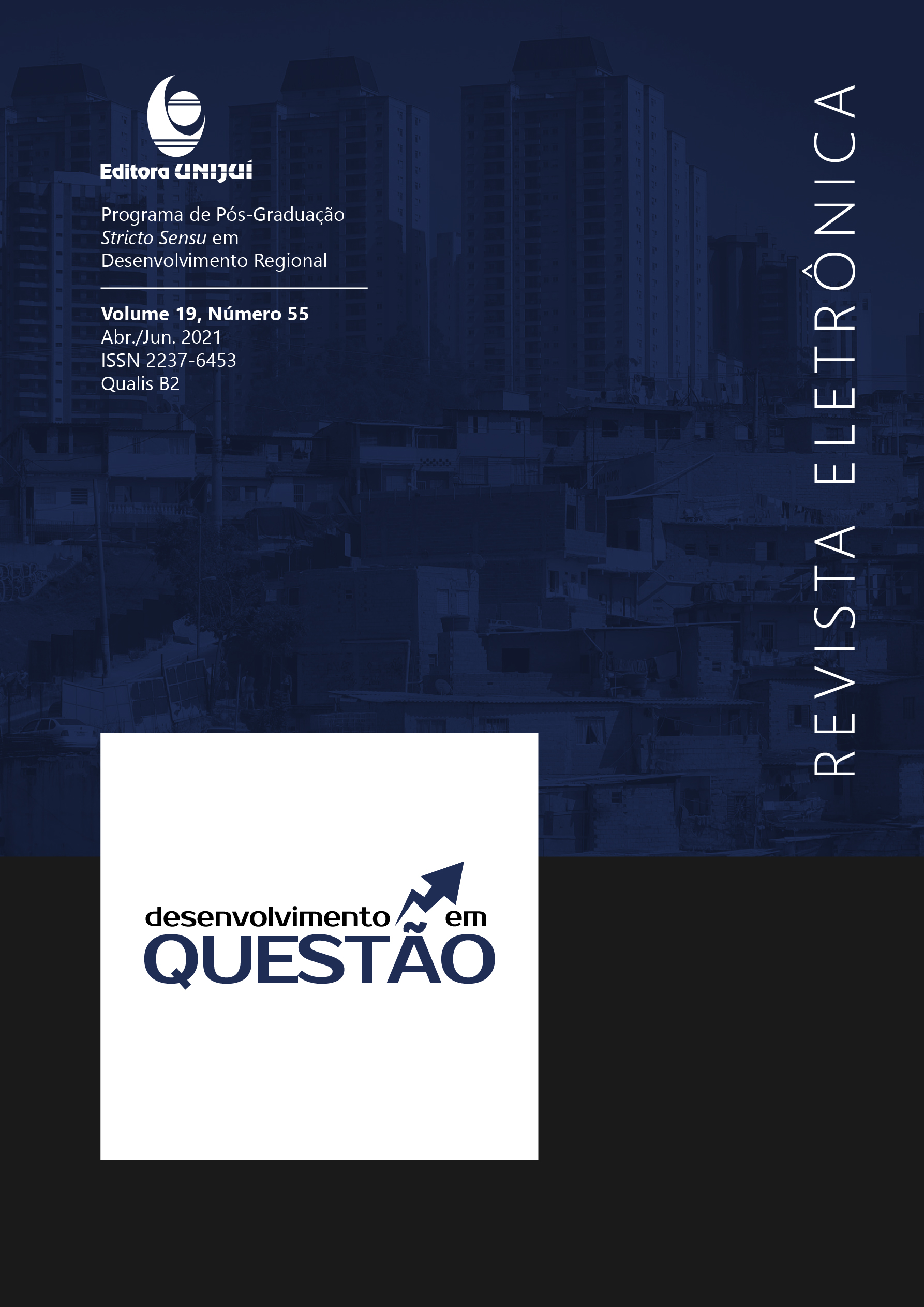Assédio Moral e Sexual no Trabalho: Análise e Concepção dos Acadêmicos sobre a Violência
MORAL AND SEXUAL HARASSMENT AT WORK: ACADEMIC ANALYSIS AND CONCEPTION OF VIOLENCE
DOI:
https://doi.org/10.21527/2237-6453.2021.55.11195Palabras clave:
Assédio Moral, Assédio Sexual, Ambiente de Trabalho.Resumen
No presente estudo analisou-se aspectos relacionados ao assédio moral e sexual em atividades no ambiente de trabalho o que possibilitou a identificação de possíveis casos. Os dados para a pesquisa foram coletados de acadêmicos do curso de administração noturno do Campus de uma Universidade Federal localizada no Norte do Rio Grande do Sul, que exercem função remunerada. Com a análise dos dados identificou-se um bom conhecimento dos acadêmicos sobre o tema. O número de casos de assédio moral ocorrido foi significativo em comparação ao total da amostra, já o assédio sexual ocorre em menor proporção. O método utilizado para o desenvolvimento da pesquisa é o descritivo, com finalidade de registrar e analisar dados, utilizando como fonte primária questionários e como fonte secundária estudos relacionados ao tema. Ao final do trabalho concluiu-se que o assédio ainda é um mal bastante presente no ambiente de trabalho e que a falta de denúncia por parte dos assediados continua sendo um fator que contribui para que o assédio continue acontecendo.
Descargas
Publicado
Cómo citar
Número
Sección
Licencia
Ao publicar na Revista Desenvolvimento em Questão, os autores concordam com os seguintes termos:
Os trabalhos seguem a licença Creative Commons Atribuição 4.0 Internacional (CC BY 4.0), que permite:
Compartilhar — copiar e redistribuir o material em qualquer meio ou formato;
Adaptar — remixar, transformar e criar a partir do material para qualquer fim, inclusive comercial.
Essas permissões são irrevogáveis, desde que respeitados os seguintes termos:
Atribuição — Atribuição — os autores devem ser devidamente creditados, com link para a licença e indicação de eventuais alterações realizadas.
Sem restrições adicionais — não podem ser aplicadas condições legais ou tecnológicas que restrinjam o uso permitido pela licença.
Avisos:
A licença não se aplica a elementos em domínio público ou cobertos por exceções legais.
A licença não garante todos os direitos necessários para usos específicos (ex.: direitos de imagem, privacidade ou morais).
A revista não se responsabiliza pelas opiniões expressas nos artigos, que são de exclusiva responsabilidade dos autores. O Editor, com o apoio do Comitê Editorial, reserva-se o direito de sugerir ou solicitar modificações quando necessário.
Somente serão aceitos artigos científicos originais, com resultados de pesquisas de interesse que não tenham sido publicados nem submetidos simultaneamente a outro periódico com o mesmo objetivo.
A menção a marcas comerciais ou produtos específicos destina-se apenas à identificação, sem qualquer vínculo promocional por parte dos autores ou da revista.
Contrato de Licença (para artigos publicados a partir de 2025): Os autores mantêm os direitos autorais sobre seu artigo, e concedem a Revista Desenvolvimento em Questão o direito de primeira publicação.











